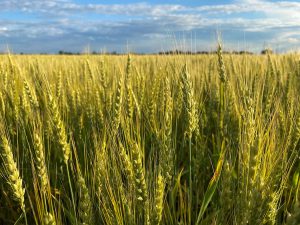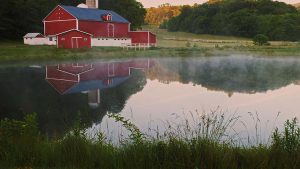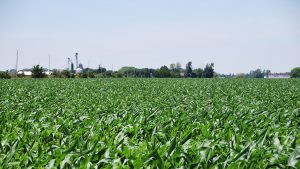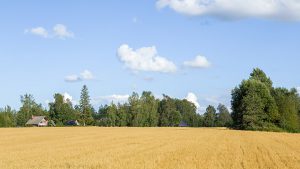Environmental insurance
CONVERSATIONS WITH BUSINESS EXPERTS
(J.M.) DO GRAIN FARMERS NEED ENVIRONMENTAL INSURANCE COVERAGE?

(M.B.) Absolutely. When it comes to talking about environmental insurance policies, most farmers worry about liability coverage, and what it could cost if there was an environmental spill that gets off their property. But first party coverage to help clean up spills that occur, or are confined to your own property, are just as important.
When it comes to talking to clients about environmental issues, incidents of spray drift and chemical or manure spills are the ones farmers are most concerned about. But the most common type of environmental claim we see is still oil spills. Machinery upset, impact with fuel and oil storage, and leakage from residential furnace oil tanks top the list and can cause major environmental problems. They can also be very expensive to properly clean up.
Coverage for pesticide spraying is another area of concern to most farm policy holders. Farm operators need to be aware that custom spraying is not covered by a standard farm environmental liability coverage, it is a separate coverage that needs to be purchased. Make sure you speak to your insurance advisor about coverage for custom spraying, it’s important farmers know what is covered, or more importantly, what isn’t.
ARE ENVIRONMENTAL POLICIES COVERED UNDER PROPERTY INSURANCE AND LIABILITY COVERAGE?
It’s always a good idea to talk to your insurance advisor to make sure you have appropriate coverage. It’s also important to remember that property insurance is first party coverage and liability insurance is third party coverage. In general, first party covers anything that happens to you and your assets, while liability insurance covers what happens to other people and their assets that you are legally responsible for. So, in the case of an oil spill that you are able to contain on your property, first party coverage would respond. If the spill escapes your property by getting into a drainage ditch, then third party coverage responds. It’s important to know the difference and what you have coverage for.
WHAT CAN FARMERS DO TO PREVENT ENVIRONMENTAL INSURANCE ISSUES OR CLAIMS?
Spills are common claims made under environmental policies, so taking a proactive approach and preventing any type of spill is a start. Make sure all farm equipment is properly maintained and follow the proper safety protocols when storing and handling dangerous goods like pesticides. Ensure impact protection is installed around fuel storage tanks, and make sure those tanks, and any furnace oil tanks are inspected regularly.
One of the most overlooked ways farmers can protect themselves is by understanding their policies. Talk to your insurance provider at least once a year to review your policy. Make sure they understand the unique risks your operation faces and work together to identify any gaps that may exist in your coverage. Ask the questions first — you don’t want to be asking them after you’ve had a spill or need to make a claim.
HOW DO INSURANCE PROVIDERS ASSESS COVERAGE AND RATES FOR FARM AND ENVIRONMENTAL COVERAGE?
Every farm operation is different and requires unique needs or coverage. Insurance companies look at many factors when evaluating an operation, but claims history is definitely a major consideration, and can often be the number one factor. They do look at a farm operation as a whole, where factors like outbuilding maintenance and housekeeping are considered too. •


























